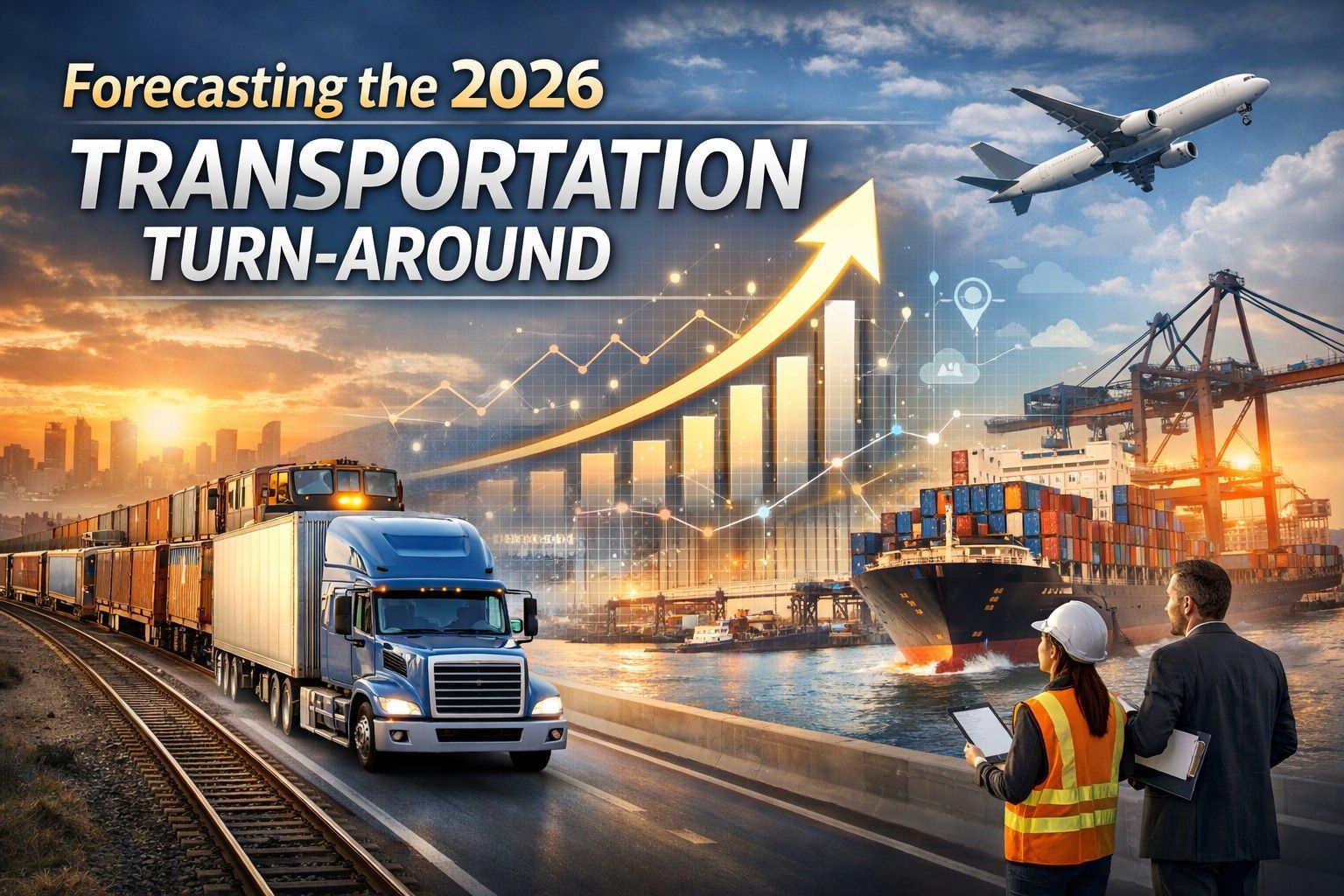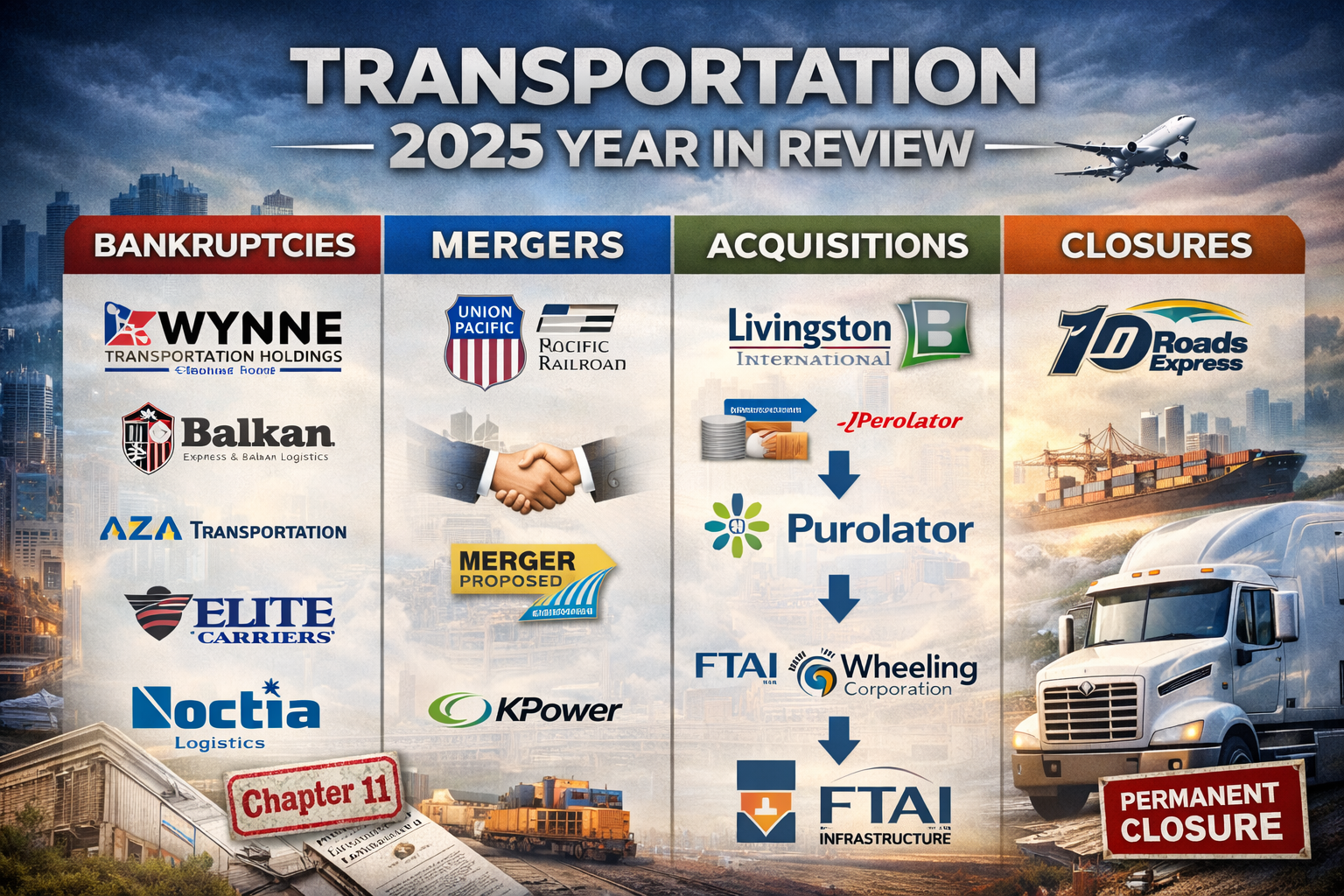So You Wanted to Be in the Transportation Industry… and Didn’t Know About the Taxes?
Share this Article:

Welcome to the ride. It’s fast, it’s profitable, it’s essential—and it’s taxed in more ways than you imagined.
The transportation industry is the engine of the American economy. Whether it’s over-the-road trucking, logistics coordination, intermodal shipping, or freight brokerage, this sector moves everything. But once you’ve made your move into the industry, you quickly realize there's a hidden maze you didn’t expect to navigate:
The transportation tax system.
This blog is for every operator, fleet owner, logistics entrepreneur, or back-office professional who once thought, “It’s just fuel, freight, and invoices, right?” Think again.
The Tax Landscape: It’s Not Just Income Tax
When you think of taxes, your mind may go straight to federal income tax or perhaps sales tax on purchases. But in transportation, taxes show up under many more names—and across every mile you drive.
Here’s a snapshot of what makes tax compliance in this industry so uniquely complex:
1. Fuel Taxes (Federal & State)
Trucking companies pay fuel excise taxes every time they fill up—and not all of it is recoverable. If you use fuel for refrigeration units (reefers) or non-highway vehicles, you could be due for a refund… if you know how to apply.
2. IFTA (International Fuel Tax Agreement)
IFTA requires tracking miles driven in each state and gallons of fuel purchased—then filing quarterly reports to distribute taxes properly. Mess up IFTA, and you’re asking for penalties or a license suspension.
3. IRP (International Registration Plan)
IRP governs your apportioned license plates. It’s not just about buying tags—it’s about reporting miles driven in each state for each truck. Miss a filing, and you might not be able to operate legally.
4. Sales and Use Tax
From trailers and tractors to parts and repairs—what’s taxable changes from state to state. Some items may be exempt under resale or rolling stock rules. Others might be over-taxed by mistake. Sales tax audits in transportation are brutal if your records aren’t clean.
5. Heavy Vehicle Use Tax (HVUT – IRS Form 2290)
If your truck is over 55,000 pounds, you must pay HVUT annually. File it late, and you can’t renew your tags. Don’t file at all, and the IRS will find you.
6. Nexus and Multi-State Exposure
With remote dispatchers, out-of-state drivers, or leased equipment, your company could have tax obligations in states you didn’t know about. That’s called nexus, and states are eager to enforce it.
7. Exemption Certificates & Tax Settings
If you sell services or lease equipment, issuing the right resale or exemption certificate is critical. One wrong form, and you might owe sales tax you thought the buyer was handling.
Why It’s So Complicated
Unlike retail or tech industries, transportation crosses boundaries every day—literally and legally. You operate in multiple jurisdictions, buy and sell in different tax environments, and face federal, state, and sometimes even local compliance requirements.
Each layer brings new filing deadlines, documentation standards, refund opportunities, and audit exposure.
How to Survive (and Thrive) in Transportation Tax
If you’re starting out—or even scaling up—here are a few tips to keep you ahead of the tax curve:
Invest in Back-Office Support
Having the right partner, whether internal or external, can mean the difference between audit peace or penalty chaos. Transportation Tax Consulting firms specialize in these rules—and can save you thousands.
Use Technology to Track the Right Data
Your dispatch, fuel, and accounting systems should talk to each other. Accurate mileage, fuel, and invoice data are critical to every tax form you’ll file.
Don’t Leave Refunds on the Table
If you’re not reviewing your sales tax overpayments or filing for fuel tax refunds, you’re giving away profit.
Review Your Nexus Footprint Annually
Even if you haven’t “set up shop” in a new state, hiring a remote employee or making regular deliveries may create tax obligations.
Final Thoughts: Taxes Are a Cost… But They Don’t Have to Be a Surprise
So yes—you wanted to be in the transportation industry. Maybe you were excited about freight rates, dispatch lanes, or your first truck purchase. Taxes probably weren’t on your radar.
But now you know better.
And that knowledge? That’s the difference between just operating—and building something sustainable.
Need help untangling your transportation tax opportunities or exposure?
Transportation Tax Consulting LLC specializes in helping carriers, brokers, and logistics operators simplify compliance, uncover refunds, and sleep better at night.
Share with Us:




